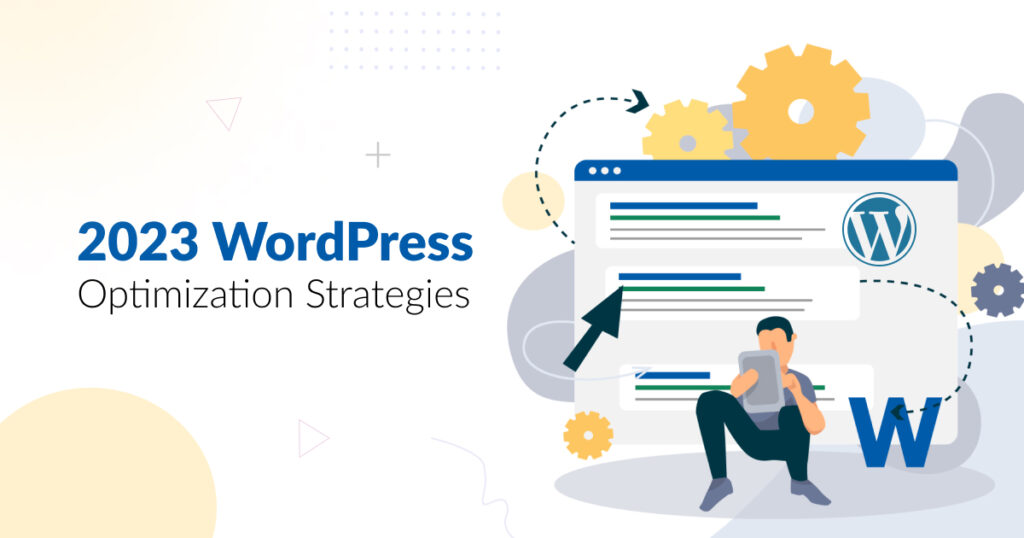WordPress is one of the effective ways to build any website, encouraging many businesses to make WordPress websites. However, it takes more than just a website to grow your business. You need to give a better user experience to your audience, who are your potential customers. With WordPress image optimization, you can increase the website loading speed and thereby improve its UX and ranking.
If you want to optimize your WordPress website, then you have to do it properly. Thus, we’ve given you a guide regarding strategies to optimize your WordPress website.
What Are The Best Strategies For WordPress Optimization For 2023?
Working with proper strategy can help you to optimize the WordPress website.
Here are the 7 best WordPress optimization strategies for 2023:
1. Reducing the CSS and JavaScript files
CSS and JavaScript files increase the HTTP requests that increase the load time of the WordPress website. So, reduce the unnecessary CSS and JavaScript files to increase the website loading speed.
2. Using Fast Web Hosting
There are many web hosting service-providing companies, so you must choose reliable hosting services. Also, note that shared hosting is better if the number of audiences on the website is lesser. However, if the number of audience engagement on the website is more, then you can choose a VPS server that can handle more traffic and increase website load faster.
3. Optimizing The Database In CMS
As the database of the website increases with posts, comments, and other aspects, the loading of the website slows down. This database can be optimized by using speed optimization plugins.
4. WordPress Image Optimization
If the number of images is more on the website, then it takes more time for the website to load. So, reduce the images and use limited images only if it is necessary on the website. WordPress image optimization can improve the performance of the website and improve the website speed. You can also compress the images by using the tools like Compressor.
5. Optimize The Website Design
You need to optimize the website after choosing a particular theme for the website. Optimizing website design is crucial for providing a great user experience, improving search engine rankings, and achieving your website’s goals. Create an intuitive and user-friendly layout that makes it easy for visitors to navigate and find what they’re looking for. Use a logical and straightforward navigation menu that helps users find their way around your website. Avoid overcrowded menus and ensure consistent navigation across all pages.
6. Avoiding The Page Redirects
Optimizing a WordPress website to reduce page redirects is essential for improving site speed and user experience. Page redirects can add unnecessary delays to the loading process. Start by identifying the existing redirects on your website. Tools like Screaming Frog help to generate a list of redirects. Implement canonical URLs on your pages to indicate the preferred version of a page. As a result, your redirects and duplicate pages will go down, and search engines will only index your original and important web pages.
7. Embedding The Videos
You must minimize the videos on your website, and if they are important, then they must embedded instead of hosted. When embedding videos, use responsive embed codes provided by video hosting platforms like YouTube, Vimeo, or Wistia. These codes automatically adjust the video’s size and aspect ratio to fit the user’s device, whether it’s a desktop computer, tablet, or smartphone. Before uploading videos to your website or using them in an embed, make sure to compress them. Video compression reduces file size while maintaining reasonable quality. Thus, your website loads faster, and bandwidth usage decreases.
To Sum it Up
By following these optimization tips, you can enhance the user experience on your website while still incorporating WordPress image optimization properly. Remember to keep an eye on performance metrics and make adjustments as needed to provide the best experience for your visitors. The above strategies work out best in 2023 for WordPress Optimization to give a better user experience.
